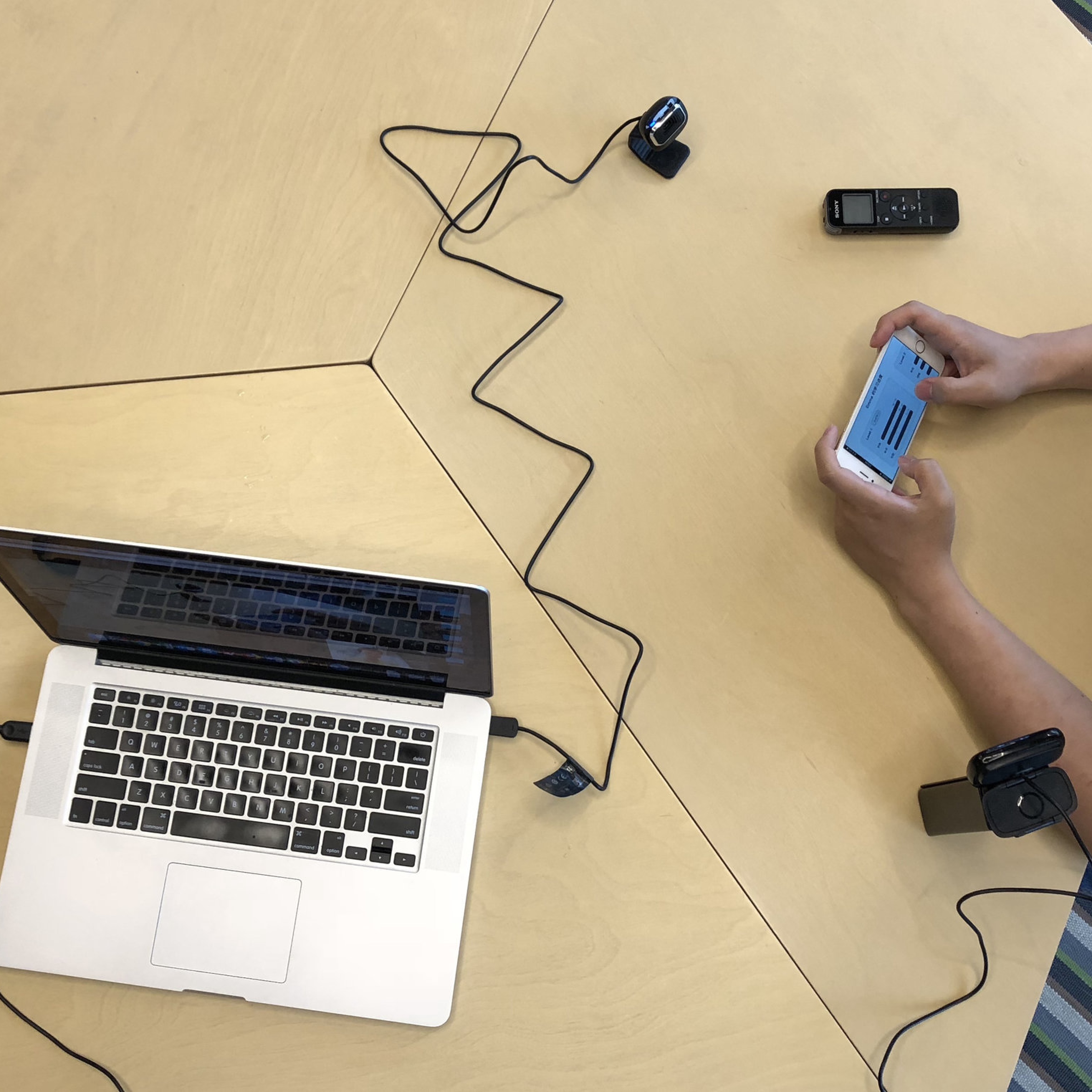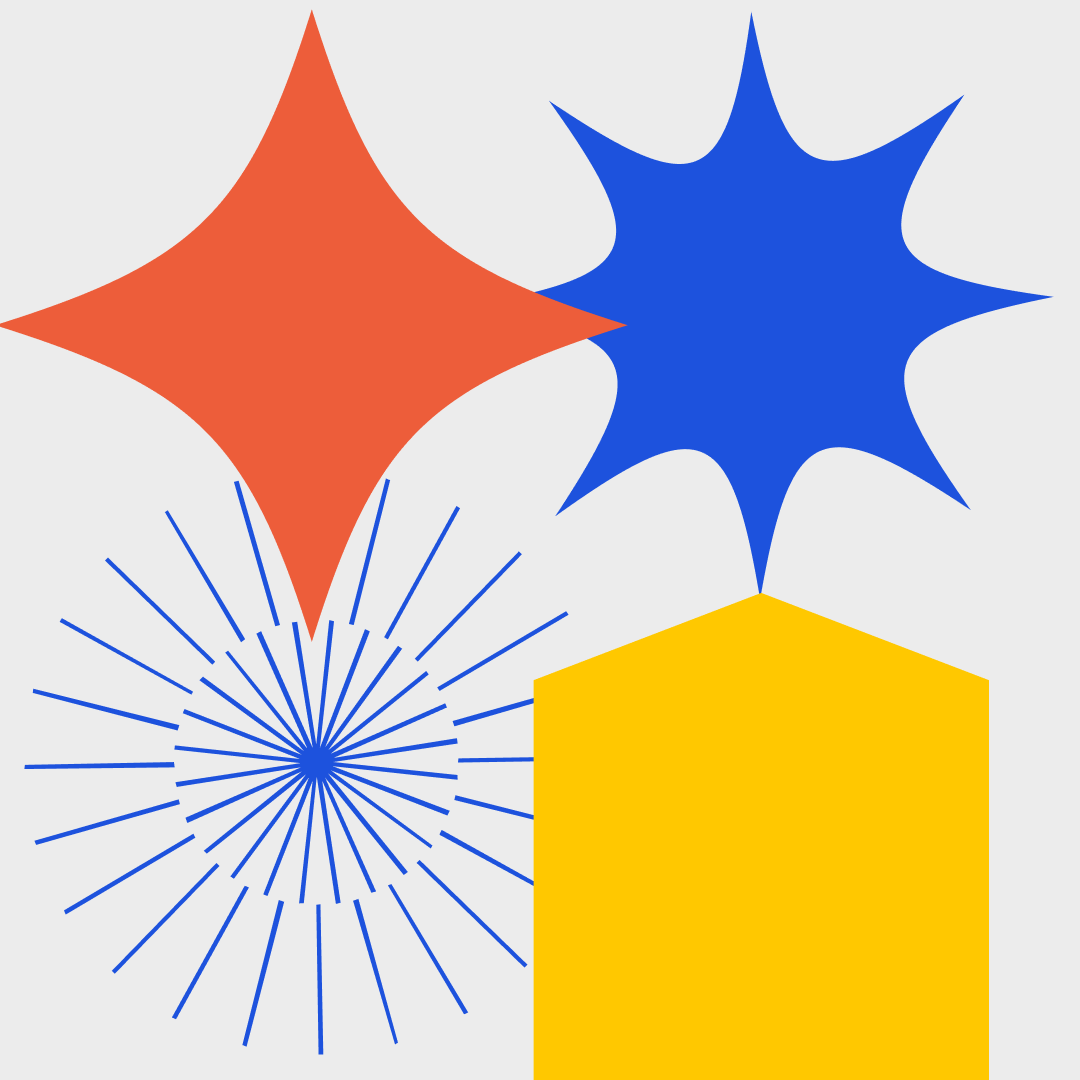We've been often asked what makes your agency stand out among others? Our answer is always 'people'. Today, we want to share what makes a good user researcher at Touch - our CASE trait model.

Touch's CASE trait model refers to C-Curiosity, A-Analytical ability, S-Story-telling ability, E-Empathy.
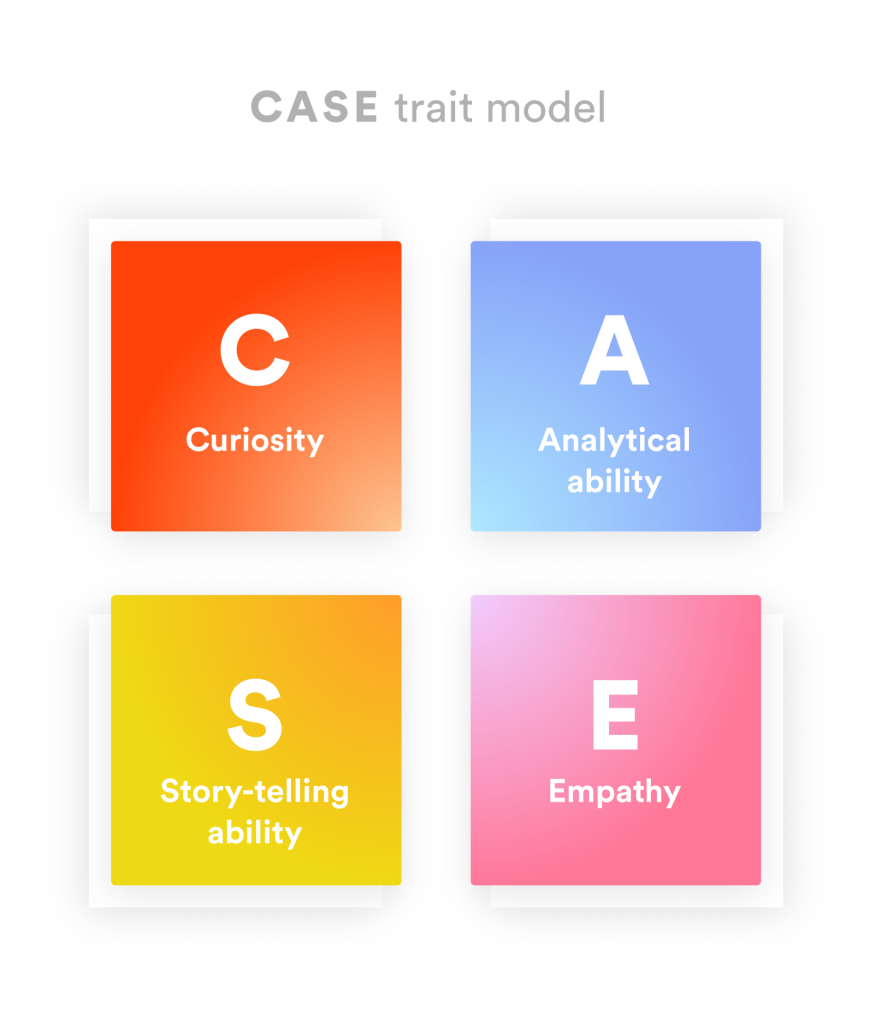
Curiosity
A good user researcher requires great curiosity. Because user research not only needs to understand human behavior, but also seeks to dig out the deep reasons. Uncurious people will be satisfied with superficial phenomena. Those who are curious will observe the details and ask "why is this" whether in life, hobbies or work. Therefore, when you are chatting with a user researcher and find that the other person notices details that you don't usually pay attention to, you may be looking at the right person.
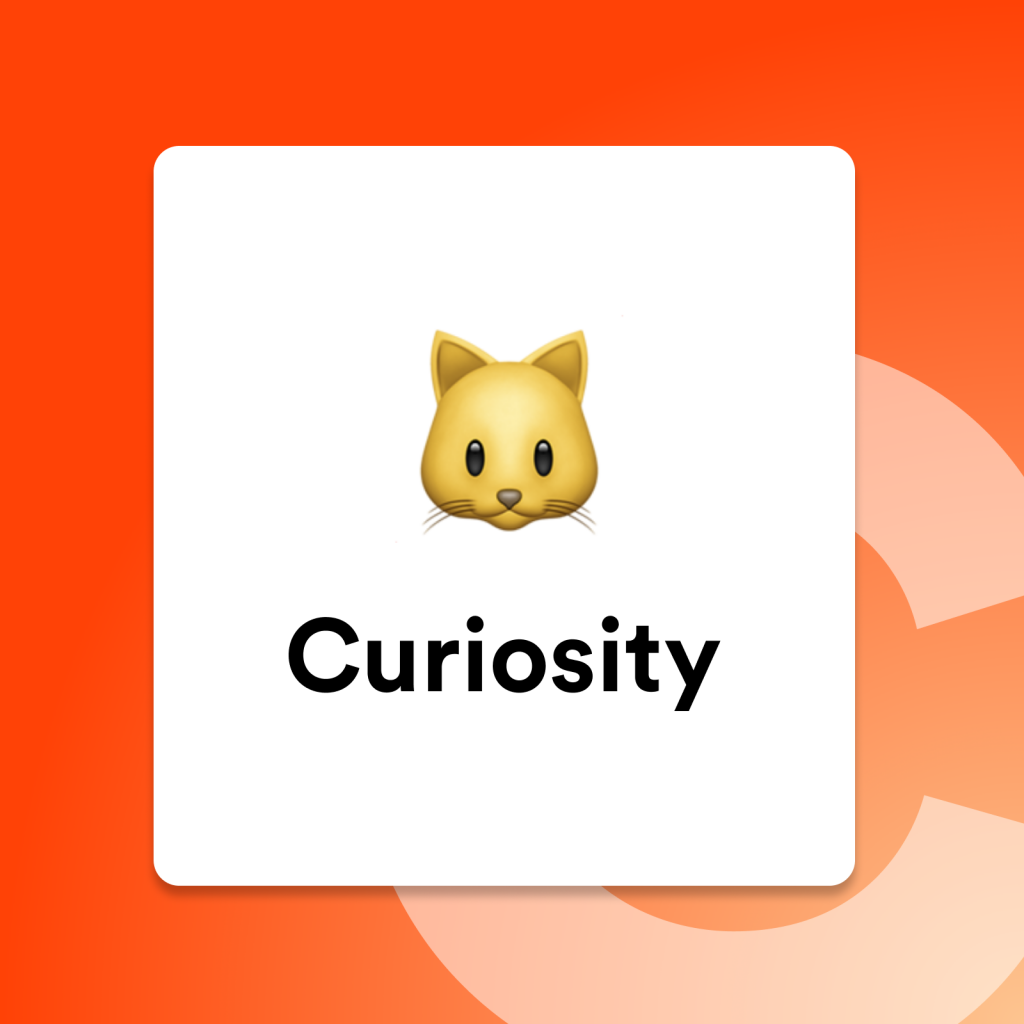
Analytical Ability
Analytical ability refers to the ability to summarize and discover laws. Although design thinking provides a lot of analysis frameworks to help us sort out user behavior, we have to admit that some people have outstanding analytical capabilities! Usually such people can quickly refine their opinions, look at the problem from a higher perspective, and discover the rules. As soon as they have done the research, they can find unexpected places or identify the commonalities of most people. To do this, researchers need to have observation skills, logical thinking and reasoning skills. If you are chatting with a user researcher and find that this person seems to see problems from a ‘higher’ angle, then he or she probably has a certain analytical ability.
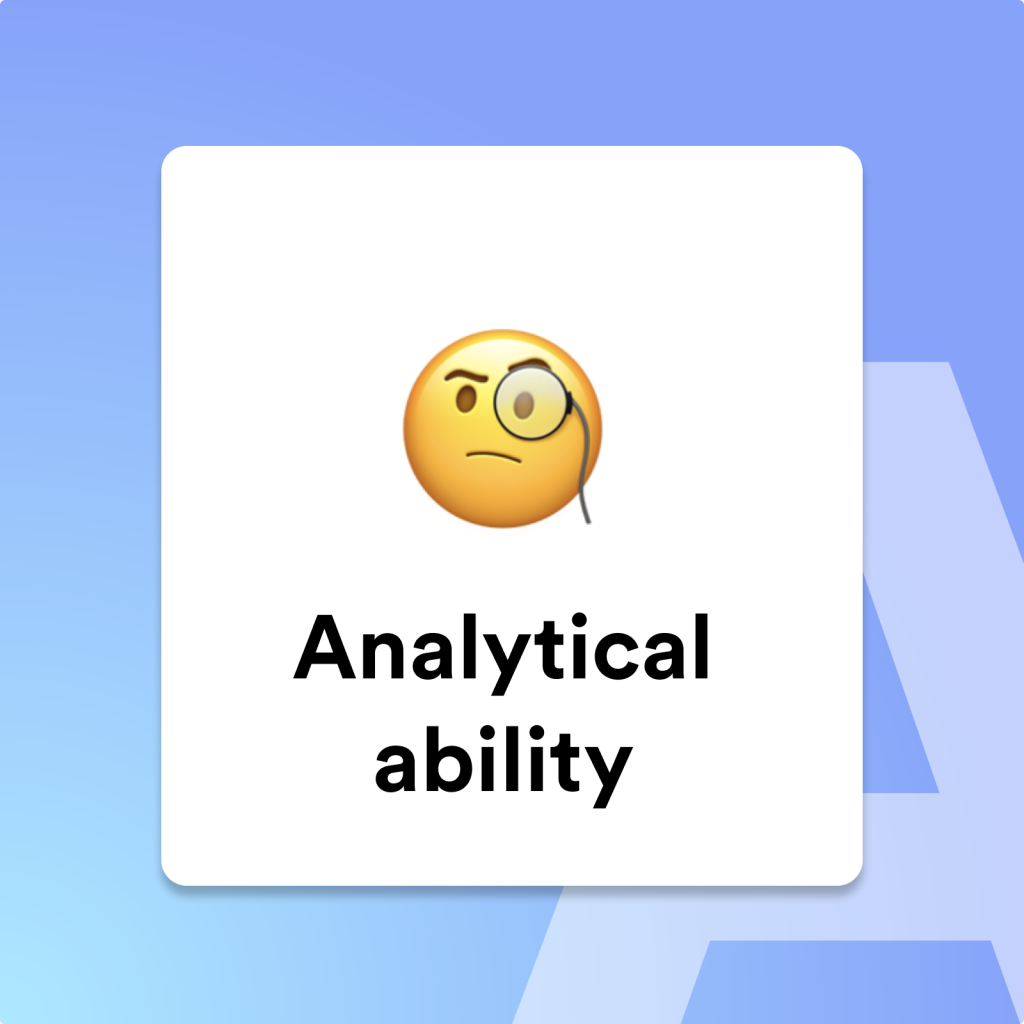
Story-telling Ability
A good story teller can not only explain things clearly, but also arouse the interest and emotions of the audience. This ability is vital for user research. The designer can silently shock clients with his or her works, but the researcher can’t avoid talking. Fifty per cent of a user researcher’s work is to deliver insights to customers. In many instances, researchers have discovered interesting insights during their research, but these insights never make it to the final report. More often, researchers share all of their findings with clients, which makes the clients overwhelmed and more confused. Researchers with strong storytelling skills can inspire the clients with few sentences. So if you find that a candidate can succinctly and vividly state the main point of a matter during an interview, hire him or her right away.
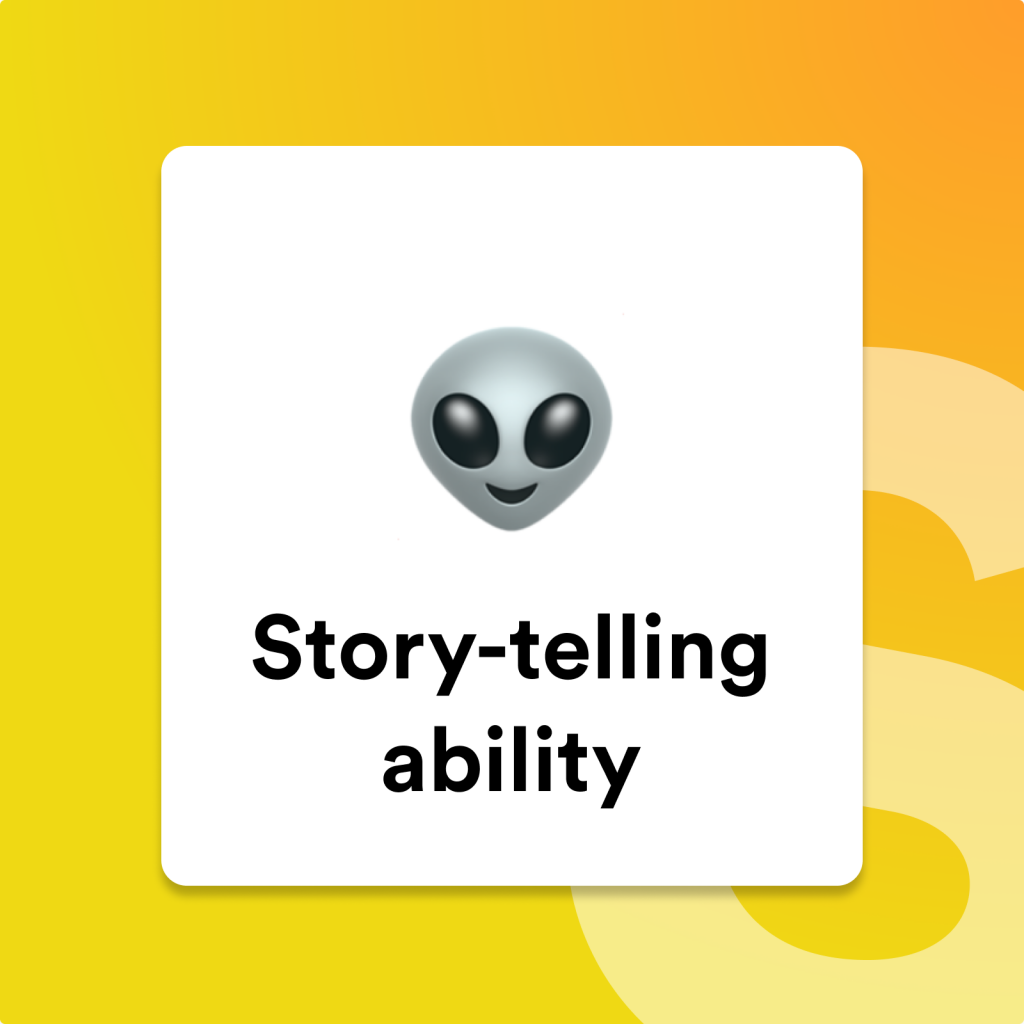
Empathy
Empathy will be reflected in the researcher's speech style, expressions, and even aura. It can help researchers get rid of subjective thoughts, put themselves better in the position of interviewees to experience their inner feelings, and finally make the research project truly people-oriented. At the same time, people with a strong sense of empathy can help interviewees shed self-consciousness, open their hearts and speak freely. This ability is particularly important when conducting research with kids.
We all have friends in our lives who are very friendly. They may not keep talking to you all the time, but they will let you feel comfortable to talk. A person with this trait can become an excellent user researcher.
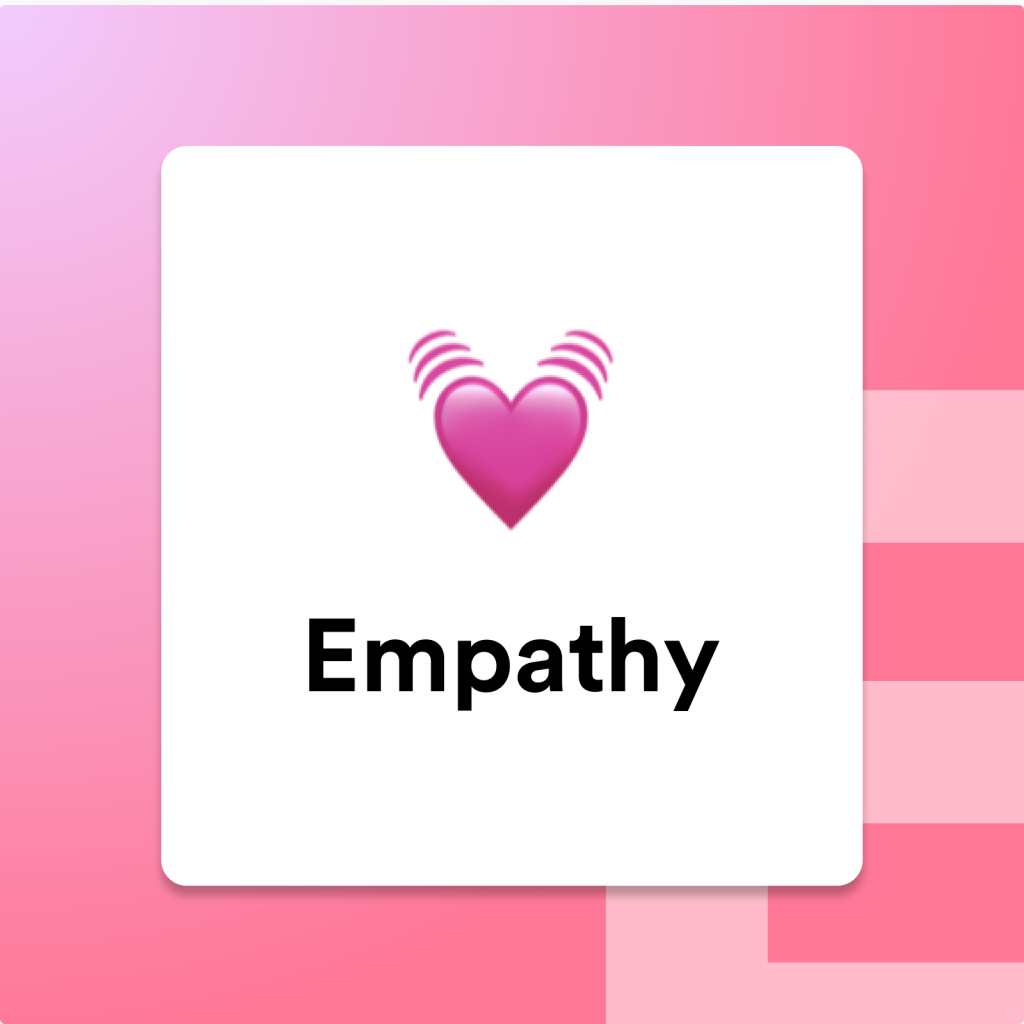
The qualities described above match our own requirements and we hope to provide you with a reference for employment standards. We will keep disseminating design research methodology, but we also hope that more people come to appreciate the importance of soft power.


